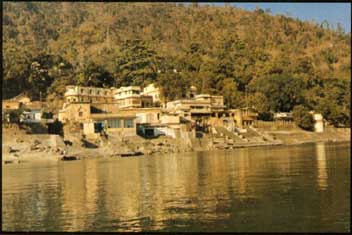It was one of those conversations when we were recalling the awful toilet conditions in grandmas' villages back when we were kids. As I have often noted in this blog, most recently here, sewage and sanitation gets marginalized in India and perhaps even subconsciously I end up bringing this topic up for discussions when I am in India.
We were chuckling away, with a little bit of discomfort recalling those unpleasant experiences, when my father hit a home run (or a sixer, in the Indian contexts!) when he said, "did you know that Mukesh stayed at our home because of those very issues?"
Yes, that very Mukesh. And, yes, in grandma's village of Pattamadai.
Sit up for "the rest of the story," as Paul Harvey often said!
 |
| Source |
With his ashram far, far away from Pattamadai, in the very north of India, it is not any surprise that Sivananda had very few followers even in the town where he was born.
While my father and grandmother were not Sivananda's followers, for as long as I can remember, we have always had at home a small figurine--about nine inches high--of Sivananda in a meditative posture. That pose itself is miniaturization of a life-size statue that is at Pattamadai. It is this life-size marble statue that ties the story together.
Soon after Sivananda's demise, his followers decided that they needed to do something to honor and commemorate Sivananda in his birthplace, Pattamadai. The first of these was to build a small prayer hall with a Sivananda statue. According to my father (the researcher in me always worries that I do not have evidence to crosscheck!) a great number of Sivananda's followers came to the village, led by the then head of the Ashram at Rishikesh--Chithananda. Mukesh, too, came with them.
The monks might not have worried about indoor plumbing and toilets. But, the majority of the visitors were city folks who had gotten used to taking care of the biological daily business within closed doors. The village had very few homes that had indoor toilets--most at that time had the open-latrines at best. My grandmother's home was one of those very few equipped with indoor toilets (which, by the way, my brother and I did not like much because we had experienced better ones in Neyveli.)
Now it is not that difficult to imagine Mukesh being at my grandmother's home, is it?
1 comment:
Not sure why Mukesh was so "particular" :)
You may enjoy one of my earlier posts in a similar vein .....
Post a Comment